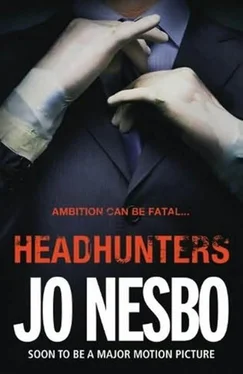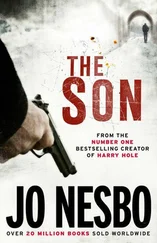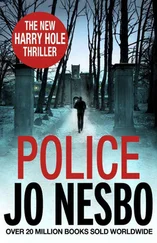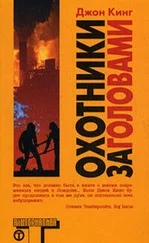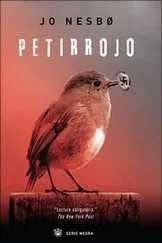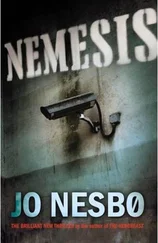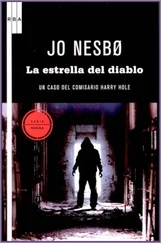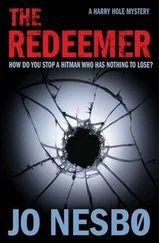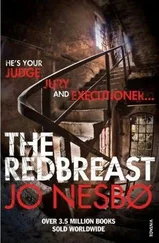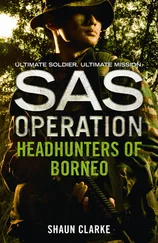‘He was right,’ Greve smiled. ‘I was used to achieving good results at school and on the sports track without doing any work. By the time I was around sixteen everything bored me, and I began to visit “shady areas”. They’re not hard to find in Rotterdam. I had no friends there and didn’t make any new ones, either. But I did have money. So, systematically, I began to try out everything that was forbidden: alcohol, hash, prostitution, minor break-ins and bit by bit harder drugs. At home my father believed I had taken up boxing and that was why I returned with a bloated face, a runny nose and bloodshot eyes. I was spending more and more time in these places where people let me stay and above all left me in peace. I don’t know if I cared for this new life of mine. Those around me saw me as a weirdo, a lonely sixteen-year-old they couldn’t make out. And it was precisely this reaction that I liked. Gradually my lifestyle began to show in my school results, but I didn’t care. Eventually my father woke up. And perhaps I thought I finally had what I had always wanted: his attention. He spoke to me in calm, serious tones; I yelled back. Sometimes I could see he was on the point of losing control. I loved it. He sent me to my grandparents in Oslo where I did my last two years of school. How did you get on with your father, Roger?’
I jotted down three words with ‘self’. Self-assured . Self-deprecating . And Self-aware .
‘We didn’t speak much,’ I said. ‘We were quite different.’
‘Were? So he’s dead?’
‘My parents died in a road accident.’
‘What did he do?’
‘Diplomatic corps. The British Embassy. He met my mother in Oslo.’
Greve tilted his head and studied me. ‘Do you miss him?’
‘No. Is your father alive?’
‘Doubt it.’
‘Doubt it?’
Clas Greve took a deep breath and pressed his palms together. ‘He went missing when I was eighteen. He didn’t come home for dinner. At work they said he had left at six as usual. My mother rang the police. They immediately went into action as this was a time when left-wing terrorist groups were kidnapping rich business people in Europe. There hadn’t been any accidents on the motorway; no one by the name of Bernhard Greve had been taken to hospital. He wasn’t on any passenger lists and the car had not been registered anywhere. He was never found.’
‘What do you believe happened?’
‘I don’t believe anything. He may have driven to Germany, stayed at a motel under a false name, unable to shoot himself. So instead he could have pushed on in the middle of the night, come across a black lake in some forest and driven in. Or maybe he was kidnapped in the car park outside Philips, two men with pistols on the back seat. Put up a fight, got a bullet through his head. The car with Dad in was then driven to a breaker’s yard the same night, crushed into a metal pancake and cut up into tiny bits. Or perhaps he’s sitting somewhere with umbrella-adorned cocktail in one hand and call girl in the other.’
I tried to detect a reaction in Greve’s face, in his voice. Nothing. Either he had considered the thought too often, or else he was just a stony-hearted bastard. I didn’t know which I preferred.
‘You’re eighteen years old and living in Oslo,’ I said. ‘Your father’s gone missing. You’re a young man with problems. What do you do?’
‘I finished school with top grades and applied to join the Dutch Royal Marines.’
‘Commandos. The macho elite stuff, eh?’
‘Definitely.’
‘The sort where one in a hundred get in.’
‘That kind of thing. I was selected to take part in the preliminary tests where they spend a month systematically trying to break you down. And afterwards – if you survive – four years building you up.’
‘Sounds like something I’ve seen in films.’
‘Believe me, Roger, you won’t have seen this in a film.’
I looked at him. I believed him.
‘Later I joined the counter-terrorism unit BBE in Dorn. I was there for eight years. Got to see the whole world. Suriname, the Dutch West Indies, Indonesia, Afghanistan. Winter exercises in Harstad and Voss. I was taken prisoner and tortured during an anti-drugs campaign in Suriname.’
‘Sounds exotic. But you kept your mouth shut?’
Clas Greve smiled. ‘Shut? I chatted away like an old fishwife. Cocaine barons don’t play at interrogation.’
I leaned forward. ‘Really? What did they do?’
Greve observed me thoughtfully with a raised eyebrow before answering. ‘I don’t think you really want to know, Roger.’
I was a little disappointed, but nodded and sat back.
‘So your comrades were picked off or something like that?’
‘No. When they attacked the positions I had given away, of course everything had been moved on. I spent two months in a cellar living on rotten fruit and water infested with mosquito eggs. When the BBE carried me out I weighed forty-five kilos.’
I looked at him. Tried to imagine how they had tortured him. How he had taken it. And what the forty-five-kilo variant of Clas Greve had looked like. Different, of course. But not that much, not really.
‘Hardly surprising you stopped,’ I said.
‘That wasn’t why. The eight years in the BBE were the best in my life, Roger. First of all, it is in fact the stuff you’ve seen in films. The comradeship and the loyalty. But in addition there was what I learned, what came to be my craft.’
‘Which is?’
‘Finding people. In the BBE there was something called TRACK. A unit which specialised in tracking down people in all possible situations and places in the world. They were the ones who found me in the cellar. So I applied to the unit, was accepted, and there I learned everything. From ancient Indian tracking skills to interrogation methods and the most modern electronic tracking devices in existence. That was how I got to know HOTE. They had made a transmitter the size of a shirt button. The idea was to attach it to someone and then follow all his movements via a receiver, the kind you saw in spy films way back in the sixties, but which no one had actually managed to operate satisfactorily. Even HOTE’s shirt button turned out to be useless; it couldn’t take body sweat, temperatures below minus ten, and the signals only penetrated the thinnest of house walls. But the HOTE boss liked me. He had no sons of his own…’
‘And you had no father.’
Greve sent me an indulgent smile.
‘Go on,’ I said.
‘After eight years in the military I started Engineering Studies in The Hague, paid for by HOTE. During my first year at HOTE we had made a tracking device which would function under extreme conditions. After five years I was number two in the command chain. After eight I took over as boss, and the rest you know.’
I leaned back in my chair and sipped my coffee. We were already there. We had a winner. I had even written it. Hired . Perhaps that was why I hesitated to go on, perhaps there was something inside me that said enough was enough. Or perhaps it was something else.
‘You look as if you would like to know more,’ Greve said.
I replied with an evasion. ‘You haven’t talked about your marriage.’
‘I’ve talked about the important things,’ said Greve. ‘Would you like to hear about my marriage?’
I shook my head. And decided to wind things up. But then fate intervened. In the form of Clas Greve himself.
‘Nice picture you’ve got,’ he said, turning to the wall behind him. ‘Is that an Opie?’
‘ Sara Gets Undressed ,’ I said. ‘A present from Diana. Do you collect art?’
‘I’ve made a small start.’
Something inside me still said no, but it was too late; I had already asked: ‘What’s the best thing you’ve got?’
Читать дальше
